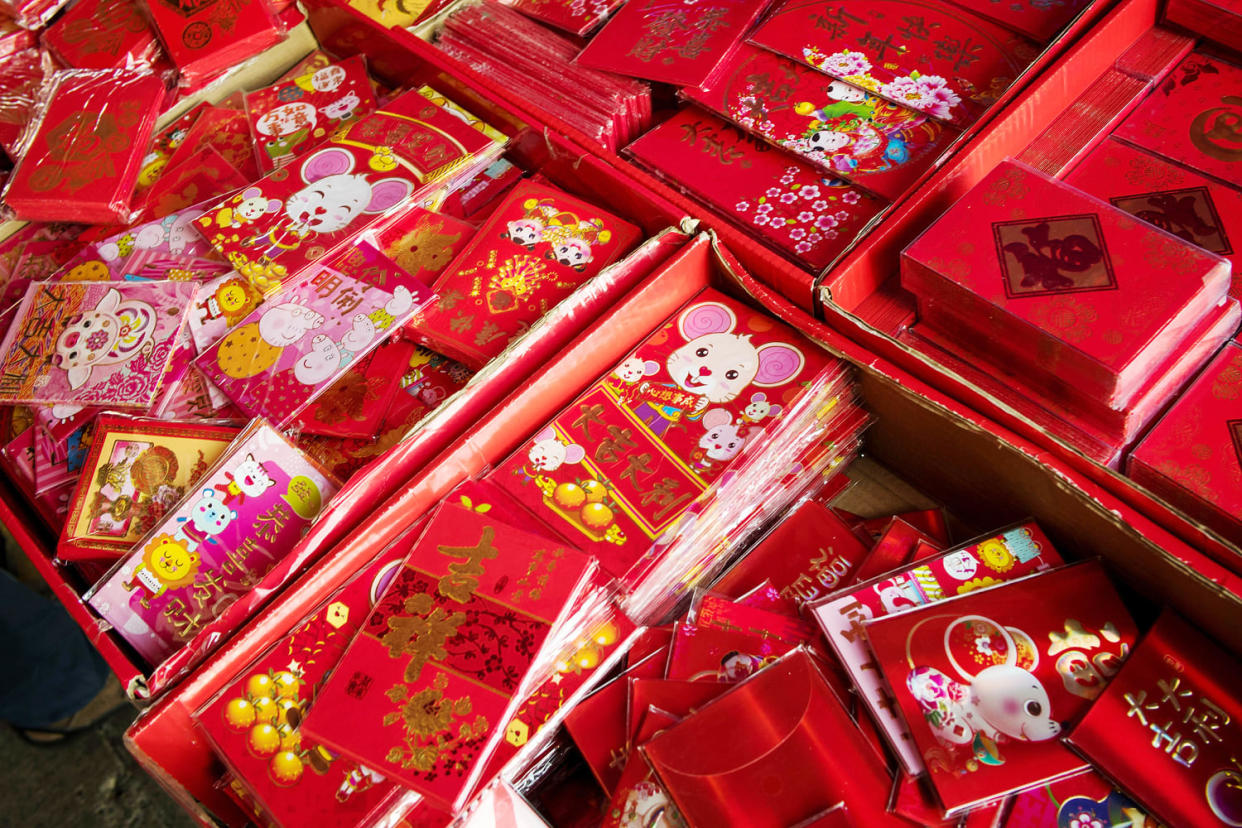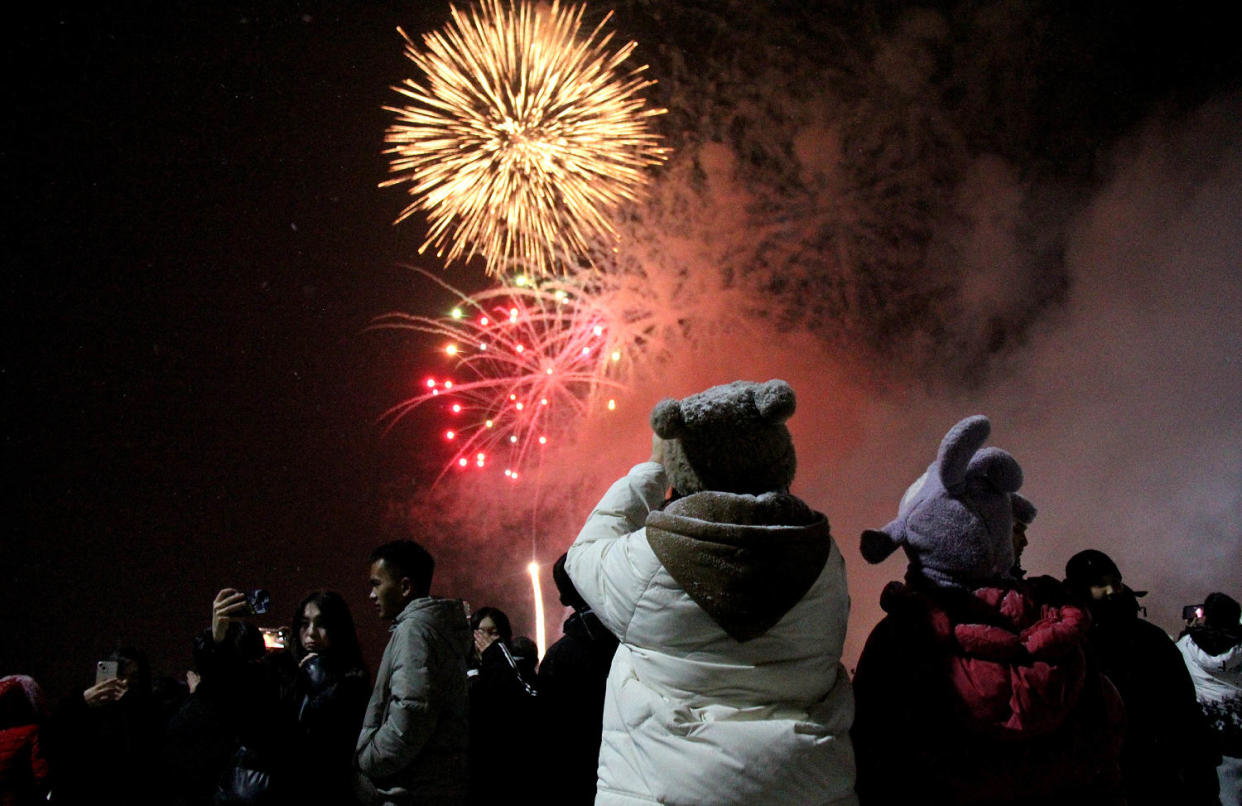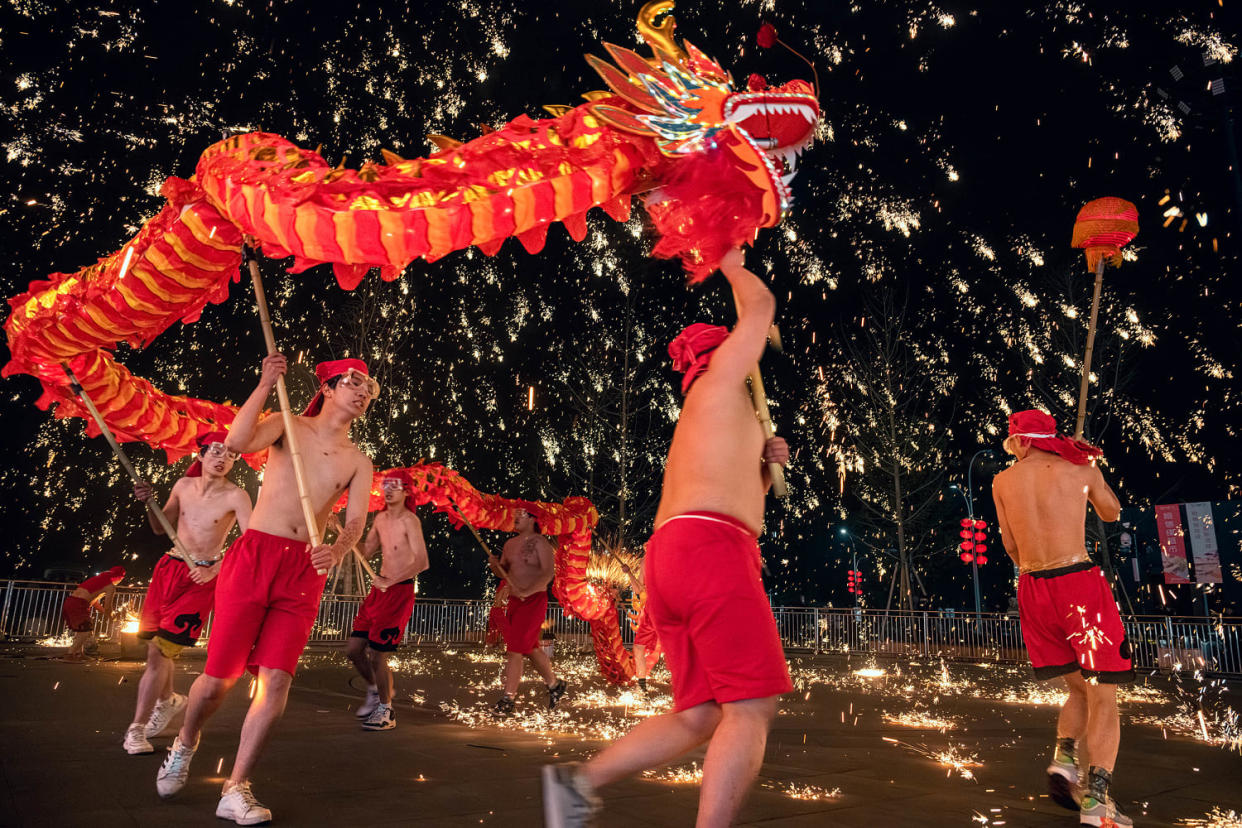The Year of the Dragon is upon us. What to know about Lunar New Year customs
The Lunar New Year arrives on Feb. 10, and festivities are underway for one of the most celebrated holidays in Asian culture.
A time of joyful revelry, the occasion is celebrated in Asian communities across the globe — including China, Korea and Vietnam — as it marks the end of one year and the arrival of spring.
Observed for centuries, Lunar New Year, or Spring Festival, is closely linked to the Chinese New Year, and is marked by the changing of the zodiac animal to represent the year ahead.
Beginning on Feb. 10, 2024 marks the Year of the Dragon. A central figure in Chinese culture, the dragon represents vigor, strength and good fortune, among other powerful attributes.
In honor of the annual holiday, cities and countries worldwide host jubilant celebrations that often include festivals, parades and fireworks.
Read on to learn more about the holiday, why it's celebrated, how long the commemoration lasts, the various traditions associated with the Lunar New Year and how to determine your Chinese Zodiac sign.
When is the Lunar New Year?
Timed to the new moon, the Chinese New Year begins on Saturday, Feb. 10 and, as is tradition, it lasts 15 days, although it can occasionally last up to 17 days in total.
According to Columbia University, the holiday dates back centuries and coincides with the end of China's agricultural season, allowing farmers a break from field work and time to spend with family.
The tradition of spending the Lunar New Year with loved ones continues today, with many members of the Asian community traveling far and wide to gather with those most near and dear.
Typically, the commemoration ends on the 15th day of the lunar month and is marked with the "Lantern Festival," a colorful display that honors loved ones and ancestors, as well as encourages peace and forgiveness in the year ahead.
What determines the Lunar New Year?
Much like it sounds, the Lunar New Year aligns with the start of a new moon. The practice of marking the Lunar New Year began centuries ago and is linked to an ancient Xia calendar which observed a new year on the second new moon following the winter solstice, according to Columbia University.
For thousands of years, China observed the Lunar New Year as the beginning of a new year until the government officially switched to the Gregorian calendar in 1912, which commemorates the day on Jan. 1.
Even though the new year technically begins on the first day of January, observing the Lunar New Year continues to be integral in Asian culture and has gradually evolved into a seasonal celebration commonly known as "Spring Festival."
Common Lunar New Year traditions

There are many time-honored traditions and customs associated with the arrival of the new year, including spending time with loved ones, shopping for holiday goods and exchanging lucky red envelopes known as "hóngbāo."
Symbolic of good fortune, the eye-catching envelopes usually contain money and are adorned with ornate gold imagery to represent prosperity.
According to the National Museum of Asian Art, another Chinese custom is decorating windows with red paper cuttings and hanging couplets on the doors for luck in the year ahead.
On Lunar New Year's Eve, it is tradition for families to sit down for a feast known as the "Reunion Dinner." One of the most significant rituals during the Lunar New Year, the reunion dinner brings everyone together to end the year, and often an extra place is set at the table for those unable to join.
Making and eating dumplings is also customary during the Lunar New Year. Symbolic of wealth, dumplings represent good fortune and are believed to ensure luck and prosperity in the year to come.

New Year's Eve is also a day to clean house in hopes of ridding the home of any lingering bad luck. That said, it's essential to not clean on the first day of the Lunar New Year for fear of washing away any good luck that arrived at the stroke of midnight.
Whether they're the kind that light up the night sky or just the small red ones from the corner store, fireworks are yet another integral part of the Lunar New Year.
The tradition comes from ancient mythology and a beast referred to as "Nian" who preyed upon people and animals on the very last day of the year. To ward off the vicious animal, citizens wore bright colors, particularly red, and lit firecrackers, which, according to folklore, scared the monster away.
Throughout the 15-day celebration, it’s common to hear their loud pops everywhere and, per folklore, it's bad luck to sweep their red wrappers up off the ground as it's viewed as sweeping your good luck away.
Chinese zodiac signs and what they mean

An important aspect of Chinese culture is the zodiac, which is based on a 12-year cycle.
Said to have originated from a Chinese Poem about 12 animals that came from the heavens to help farmers with their crops, each year is represented by a specific animal. People born in the year of those animals are said to embody specific personality traits, not unlike traditional astrology.
The 12 Chinese zodiac animals are: Rat, Ox, Tiger, Rabbit, Dragon, Snake, Horse, Goat, Monkey, Rooster, Dog and Pig.
This year, 2024, is represented by the dragon, which means last year was the year of the Rabbit. In 2025, we'll witness the Year of the Snake.
If you're curious what your Chinese zodiac sign is, you need only do the math. For example, if you were born 12 years ago or 24 years ago, your zodiac is the Dragon, or the same as this year.
The same goes for the other animal signs. See below for a list of common personality traits associated with the Chinese Zodiac:
Rat (1936, 1948, 1960, 1972, 1984, 1996, 2008): Shrewd, cunning
Ox (1937, 1949, 1961, 1973, 1985, 1997, 2009): Hard working, honest
Tiger (1938, 1950, 1962, 1974, 1986, 1998, 2010): Brave, confident
Rabbit (1939, 1951, 1963, 1975, 1987, 1999, 2011): Lucky, beautiful
Dragon (1940, 1952, 1964, 1976, 1988, 2000, 2012): Vigor, vitality
Snake (1941, 1953, 1965, 1977, 1989, 2001, 2013): Smart, sly
Horse (1942, 1954, 1966, 1978, 1990, 2002, 2014): Energetic, spirited
Goat (1943, 1955, 1967, 1979, 1991, 2003, 2015): Gentle, kind
Monkey (1944, 1956, 1968, 1980, 1992, 2004, 2016): Intelligent, creative
Rooster (1945, 1957, 1969, 1981, 1993, 2005, 2017): Faithfulness, punctuality
Dog (1946, 1958, 1970, 1982, 1994, 2006, 2018): Loyal, honest
Pig (1947, 1959, 1971, 1983, 1995, 2007, 2019): Compassionate, generous
This article was originally published on TODAY.com
